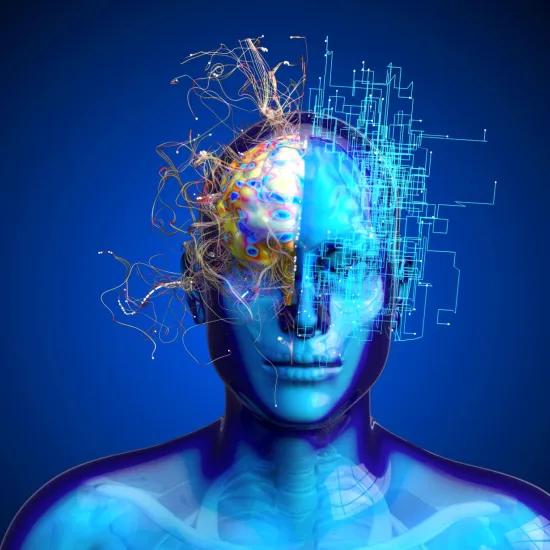Can AI-generated content, originated entirely from AI without any human input, be copyright protected? And what about AI-assisted content?
Fully generated? Or assisted by AI Technology?
AI-generated content, created entirely without any human intervention, isn’t currently eligible for copyright protection. To do so, the involvement of human creativity is key which is clearly not the case when it’s 100% AI generated. AI-assisted content is material that's generated with human intervention and/or direction, with the assistance of AI tools. Generally speaking, this may be protected by copyright if it clearly reflects the input of a human author. The author must have exercised creative control, making deliberate and creative choices throughout the creation process.
For example, “The Next Rembrandt” is a 3D-printed painting created by a team of data scientists, developers and art historians. They used deep learning algorithms trained on Rembrandt's works to produce a new painting in his style. Because human expertise and decision-making was used throughout the creative process, the new painting was eligible for copyright protection.
If it’s AI-assisted, is it automatically copyright-protected?
To answer this question, the European Commission has proposed a straightforward four-step test to help determine if AI-assisted content can be protected under EU copyright law:
- Category of creation: the output should fall within recognised creative domains like art, literature, or science. For example, an AI-generated marketing campaign or a new product design typically fits these categories.
- Human contribution: there must be human intellectual effort. This could be the case where a designer uses AI to prototype a new gadget but makes crucial decisions throughout the process.
- Originality: the work should show originality through creative choices made during its creation. For instance, a company using AI to compose music still relies on human musicians to refine and perfect the final pieces.
- Clear expression: these creative choices need to be identifiable in the result. Even if AI contributes unpredictably, it qualifies as a clear expression if there is a tangible result.
To secure copyright for AI-assisted content, it’s crucial to treat AI as a tool and document all human decisions made during conception, execution and editing. Examples include selecting input data, choosing the AI system, and detailing how the content was modified or enhanced by human.
It is important to note that, while the EU copyright framework provides a harmonized basis, national legislation may still differ from country to country. This four-step test can be seen as valuable guidance, but the extent to which AI-assisted content qualifies for copyright depends on case-by-case assessments and may differ across EU jurisdictions. Further, copyright laws of the British tradition (UK, Ireland, New Sealand South Africa) may approach those issues differently.
Adapting to the future of AI creativity
The current EU copyright framework is mostly suitable for AI-assisted creations, ensuring that human creativity involved in the process is recognised and protected.
Fully AI-generated works are not integrated in the EU copyright framework, which shows that there might need to be some changes to the legislation. Without copyright protection, AI-generated creations could be copied and used by others. Which in turn could mean losing out on competitive advantage and originality. This is a big concern for businesses that rely on AI to produce unique content.
As AI gets more and more involved in content creation, there'll be more and more debates about copyright and ownership. For tech companies, it's important to keep up with these legal developments and think about copyright at an early project stage.
Questions?
The Sirris Patent Cell, founded with the support of FOD Economy, is your contact point for all your questions related to this issue. Katrien Meuwis is Sirris’ expert on this matter. She combines a scientific background with an extensive knowledge on intellectual property. You can contact her to set up an IP strategy or getting the right answers to your questions on IP asset management, valuation of IP, licensing, technology transfers, and collaboration contracts.






